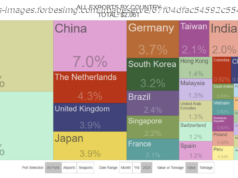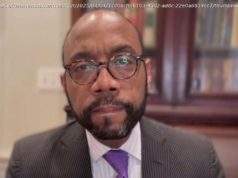Martin McGuinness, until recently Northern Ireland’s deputy First Minister and an instrumental figure in the peace process, has died aged 66…
Martin McGuinness, until recently Northern Ireland’s deputy First Minister and an instrumental figure in the peace process, has died aged 66.
McGuinness, who had been battling a rare genetic disease, triggered an election when he resigned in January over a public spending scandal .
His successor as Sinn Féin leader, Michelle O’Neill, tweeted: « My heart is broke this morning. We have lost a legend, a giant of a man. I’m very proud to say he was my friend and mentor. »
Arlene Foster, the Democratic Unionist Party leader, whose behaviour as First Minister triggered McGuinness’ resignation, nevertheless released a short statement saying « my thoughts and prayers are with his wife ».
McGuinness, a lifelong republican, joined the IRA as a young man and rose to become a regional leader, before being jailed. After his release, he became heavily involved in Sinn Féin.
He became Sinn Féin’s chief negotiator in the Northern Irish peace process, and after the Good Friday Agreement was elected as a member of the Assembly (he was also elected as an MP but did not attend).
As a politician, McGuinness surprised commentators by getting on so well with his unionist counterpart, the firebrand preacher Ian Paisley, that the two were dubbed « The Chuckle Brothers ». When Paisley died in 2014, McGuinness fought back tears as he announced he had « lost a friend ».
When he resigned in January, Paisley’s son, Ian Paisley Jr, who is a politician in the DUP publicly thanked McGuinness .
After news of McGuinness’ death broke, politicians he worked with began to pay tribute. Former Northern Ireland secretary Peter Hain described McGuinness as « pivotal » in the peace process.
Ireland’s President Michael D Higgins released a statement saying « the people across this island will miss the leadership he gave ».
The death of a man who was both a militant and peacemaker is likely to divide public reaction, with many on social media using the occasion to share historic articles on IRA attacks.
Norman Tebbit, who was injured along with his wife in the IRA bombing of the Conservative party conference, declared : « There can be no forgiveness without confession of sins. » Claims that McGuinness ordered murders while in the IRA continued to surface as late as 2014.
However, Colin Parry, whose son died in an IRA attack in Warrington, said he was « a quiet man totally committed to the peace process ».
Alastair Campbell, Tony Blair’s spin doctor during the peace process, tweeted: « So sad Martin McGuinness has died. Some will never forgive his past but without him there would be no peace. The man I knew was a great guy. »
The latest X-Men film shows care is a part of life, a huge part, and it shouldn’t reduce your status or wither down your identity to a single label.
Did you ever think you’d live to see a superhero film in which the protagonist helps an elderly man go to the loo? I have to say I didn’t, which is part of the reason that Logan , the latest film in the X-Men franchise, packs such an emotional punch. Yet perhaps I should have done, because comics have always aspired to social and political commentary.
But, first – let’s get this out of the way. Of course, comics are “not just for kids”, as the clichéd phrase defending them has it, but that’s a pretty low bar. It’s better to say, as Grant Morrison and other authors have, that they are the closest thing our culture has to a shared, non-religious mythology. Their vast, complicated universes function in the same way as the pantheon of Greek gods, albeit with rather less polymorphous perversity (because they spring from the puritan culture of mid-20th century America). They are a way of exploring big philosophical questions, while also allowing their heroes to punch people through the skull with a metal claw.
There is even a blood-soaked rivalry, between Marvel (whose back catalogue has been bought by Disney) and DC. At the cinema, Marvel has done better, through the Avengers , the adult-themed Deadpool and the X-Men series. DC has Batman and Superman, but has also got hung up on being a 13-year-old’s idea of “gritty”, that is, granite-jawed men looking sad in the rain.
My favourite comic universe has always been the one containing the X-Men, for the simple reason that those are the cartoons I watched as a kid. The lynchpin of the series is Professor Charles Xavier, an English genius whose mutation is. . well, he has a massively powerful brain, which can read and influence other people’s minds. He also uses a wheelchair, because superhero stories have always been alert to the idea of balance, and how gifts come at a cost. Xavier can go anywhere in the world using his brain, but his body cannot keep up.
Xavier first appeared as a character in 1963, in the middle of America’s civil rights struggle, and it’s no coincidence that his single most important character trait is his optimism in the future of the human race. Within the X-Men universe, his role is to argue consistently that mutants can integrate into human society, and do not need to be treated with suspicion and fear. His consistent nemesis in the film series is Magneto, who first learns of his magnetic abilities in Auschwitz, bending the gates of the death camp with the force of his anger as his mother is dragged away. At first, Magneto and Xavier are friends; but the former refugee cannot accept the professor’s blithe pacificism. He has seen what one group can do with its hate and fear of another.
That particular history means that the core X-Men stories can only happen within a strict time frame, dictated by the 20th century’s defining moments. Logan pushes these to their limits: it’s 2029, and Professor Xavier is now in his nineties. That all-powerful brain is devastated by dementia, turning it into a “weapon of mass destruction”. The film is rich in allusions. Logan has ended up as a glorified Uber driver, and his journeys take him across a Mexican border fortified by concrete slabs. Driverless lorries fill the road, and the simmering racial tensions of America still exist, with a kind-hearted black family threatened at one point by a gang of white vigilantes in a pick-up truck.
It’s fitting, then, that the special effect used most effectively here is the one everyone gets for free – time. Hugh Jackman’s Logan/Wolverine is rheumy of eye, hobbling slightly, with one of his adamantium claws arthritically failing to deploy properly in an early battle. Patrick Stewart’s Xavier looks even more decrepit, with wispy tufts of white hair and a quavering tone to his formerly crisp elocution. It helps that Jackman and Stewart have played these characters for 17 years. They reek of history.
Home
United States
USA — mix Martin McGuinness, former militant and peacemaker, dies aged 66 Logan shows an...






